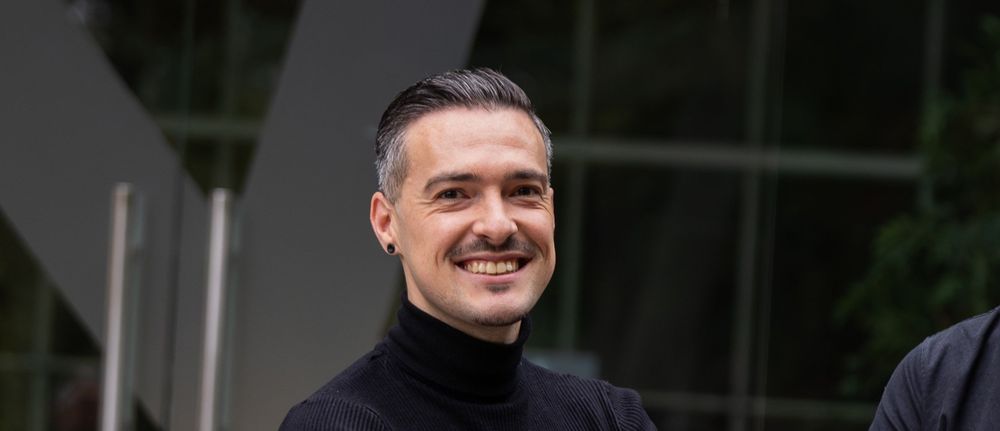What is the state of artificial intelligence (AI) today and how can ELAN Languages’ tailored solutions help organisations that want to break through internationally via their content? We asked Jourik Ciesielski, Chief Technology Officer at ELAN Languages and founder of the company C-Jay International.
Let’s get straight to the point: why is it good news for companies that ELAN Languages has brought in C-Jay International?
Well, there are several reasons to be delighted. One of the main ones is certainly the consultancy aspect, which I think will gain more and more importance. Every AI application is evolving so fast and there are so many models and options that just staying abreast of all the strengths and weaknesses is almost a full-time job. That’s what C-Jay International has been doing for clients for years, combined with an in-house developed product that allows us to provide various solutions. Think automated post-editing of translated content, quality evaluations, text-to-speech services, etc. We can now build all these things and new solutions on a larger scale. Plenty of opportunities and challenges to look forward to.
Why is this consulting element so indispensable these days?
One can barely see the forest for the trees in the AI landscape these days. There is so much more than just Google Translate or ChatGPT. If your company is serious about getting to work with its multilingual content, having a knowledgeable partner by your side is paramount. If everyone starts using ChatGPT tomorrow, that will become the new starting point. But how can one stand out with a positive image? Together with our clients, we analyse how they can optimise their processes, and which technology and model best suit their needs and add tangible value. We also help them to manage their content intelligently and make smart choices: what content is suitable for automated translation? When is a human check or even a human translation appropriate?
And that’s where humans come into play. So, they won’t be replaced by all this technological ingenuity?
Absolutely not. Human experts remain a necessity; they just don’t need to be equally prominent in all areas anymore. We have to make people and technology complementary to each other. Technology is great and can do a lot, but it is not a panacea that can take over all tasks. Those who see artificial intelligence as the ultimate solution are doing both AI applications and human expertise a disservice. An example: analysis of a client’s website shows that 30% of that site consists of high-traffic content. Content that actually results in sales or reaches new clients. That 30% should absolutely be translated by a human in full control. This copy must be perfect in every way. The translation of other content, such as typically dry and technical product descriptions, can be automated with a quality check by a human at the end. And for copy that is rarely read at all, an entirely automated translation flow will suffice. It’s about managing your content smarter and refining it according to the fit-for-purpose principle. Quality is not necessarily about linguistic perfection in a B2B context, but rather: “Does our multilingual content do what it’s supposed to?”
So on that front, you envision a bright future? Not just for our industry as a whole, but for language professionals specifically?
Most definitely. Last week, I participated as a panellist at the TEF (Translating Europe Forum, European Commission Conference for language professionals). I advised a room full of translators to keep abreast of technological developments. There are plenty of opportunities. For example, translators are ideal prompters, as a good prompt depends on clear language. And who is more competent to do that well than language professionals? In terms of content, the job will certainly change: post-editing, prompting, technology consulting, language advice… it will all become part of the job. But the need for good multilingual content will not disappear, quite the contrary. I like to compare it to video stores. Thirty years ago, they were everywhere; now they’ve all but disappeared. We’ve all switched to streaming these days. The films and series are still there; only the way in which we find and watch them has changed. On top of that, streaming platforms such as Netflix generate more content to be translated and set new standards for audiovisual translations.
In short: ELAN Languages can still add tremendous value to businesses, even in the present AI era.
Yes, I have no doubt about it. On the one hand, there are now organisations that do everything themselves with the help of machine translation tools, such as DeepL or Google Translate, with all the associated limitations and potential issues. And on the other hand, there is the traditional model: clients send their copy, style guides, and all kinds of additional documents to the translation agency via email. An unwieldy and cumbersome process that tends to absorb a lot of time. Between these two extremes, I think there is a huge gap full of possibilities. That is where ELAN Languages wants to be. And it’s not just about offering a good translation mix, but also about optimising workflows and automating processes so that companies don’t have to send us emails with large files. In addition, we offer services such as quality reporting and multimodal solutions (voice-to-text). AI is powering everything, but certainly isn’t taking over.
Tailored advice
Want to know how ELAN's integrated AI makes a difference for your business? Take a look at our AI page or ask Jourik for advice: jourikciesielski@elanlanguages.com – +32 11 49 04 68. He will listen to what you want to achieve and plot the right course with you.
